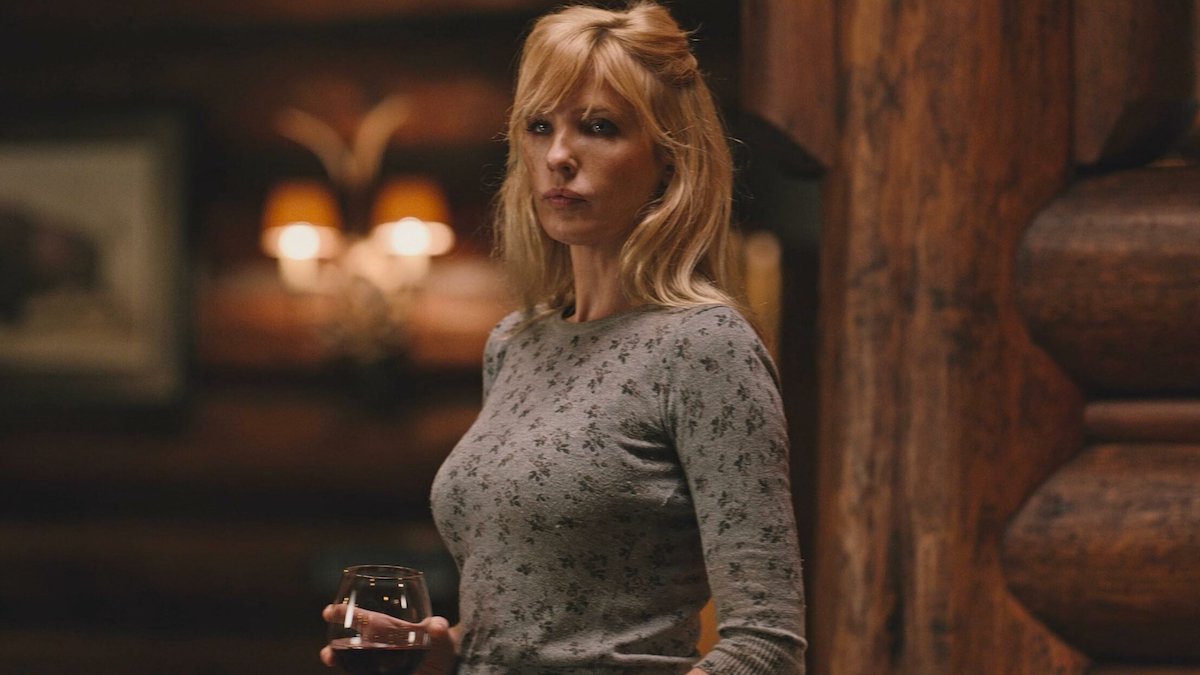Kelly Reilly is Yellowstone‘s Beth Dutton, and in a world run by cowboys, ranch hands, and powerful men, her impact on the Dutton family, their lifestyle, and anyone who dares look at them wrong is at the very heart of the series, crafting a brilliance that wouldn’t be possible without her.
Taylor Sheridan knows Beth’s power like no one else; in fact, he went up against many opposing opinions as he created her character, but he didn’t bow down or scale her back, and the fruits of his labor have paid off in a significant way. Beth signifies something we all want to have; freedom — and a sweet one at that, but some people didn’t know what to do with all of her strength, feeling intimidated even just seeing her on paper.
After Sheridan had pitched Yellowstone to HBO as “The Godfather in Montana,” the network stepped forward into series development, but there were several bumps in the road. The most poignant was how they felt about fan-favorite character and all-around powerhouse Beth Dutton. Sheridan thinks we all have a little bit of Beth’s fire within us, as he explains to the Hollywood Reporter.
“‘We think she’s too abrasive, we want to tone her down. Women won’t like her.’ They [HBO] were wrong, because Beth says the quiet part out loud every time. When someone’s rude to you in a restaurant, or cuts you off in the parking lot, Beth says the thing you wish you’d said.”
If you’ve ever watched an episode of Yellowstone or seen a video of Beth’s shining (and most intense) moments, you know that what Sheridan says is absolutely correct. Sometimes we’d all do well to be a little more like Beth; unabashedly brutal in our thoughts, opinions, and delivery of both.
In continuing to champion Beth, after the execs had all spoken their peace about her, Sheridan asked them a very important question.
“So I said to them, ‘OK, everybody done? Who on this call is responsible for a scripted show that you guys have on the air? Oh, you’re not? Thanks.’ And I hung up. They never called back.”
We have a feeling our beloved Beth Dutton would have done something very similar, perhaps spitting a bit more vitriol in those tense moments, but it’s all very much an homage to the strength of her character — powerful, brilliant, and quite the vulgar wordsmith.
Yellowstone ending up on HBO wouldn’t have made sense in the long run for several reasons, and knowing what we know now, we wouldn’t have wanted it. It’s not just Beth that the network seemingly had a significant problem with; it was the particular genre of storytelling altogether, the very genre that has opened up an entire Yellowstone Universe, with prequels and spinoffs aplenty on the horizon, some having already aired to adoring fan bases worldwide.
“We go to lunch in some snazzy place in West L.A., and [Yellowstone co-creator] John Linson finally asks: ‘Why don’t you want to make it?’ And the vp goes: ‘Look, it just feels so Middle America. We’re HBO, we’re avant-garde, we’re trendsetters. This feels like a step backward. And frankly, I’ve got to be honest, I don’t think anyone should be living out there [in rural Montana]. It should be a park or something.'”
“It should be a park or something,” if the phrase made you chuckle, you’re not alone. There’s already a massive national park in Montana — in fact, there are eight of them — and yet, people still find the land and its beauty not just inhabitable, but the kind of place that you build your wildest dreams upon. The cowboy way of life, the rural and Middle-America class; we only exist because of them. Farmers, ranchers, and those who work from sun up to sun down to supply this country with all it needs to thrive.
The Yellowverse is a love story to them, to the way of life that can so often be scoffed at by those in the industry — and you know how much we love a love story.

